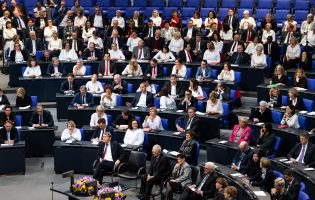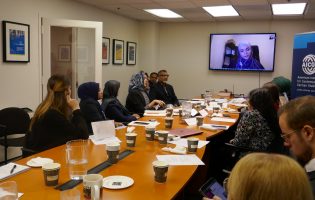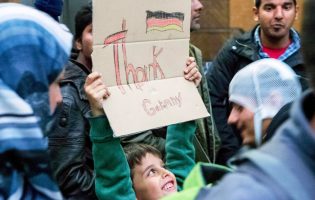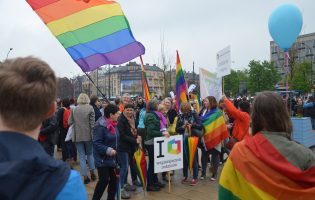
Seventy Years as a Country of Immigrants: What’s Next for Germany?
In its seventy-year history, the Federal Republic of Germany has always been a highly desired destination for immigrants, not unlike some of its European neighbors and the United States. This …
Axel Heck, DAAD/AGI Research Fellow
AGI is pleased to welcome Axel Heck as a DAAD/AGI Research Fellow from May to mid-July 2019. Dr. Axel Heck is a senior lecturer in International Relations at Kiel University …

Welcoming Communities, Embracing Diversity – A Transatlantic Motto
Dallas, TX, Fayetteville, AR, and Nuremberg, Germany all have something in common: They have been developing a plan to welcome newcomers in their midst. What drives these initiatives? Economic growth …
Recent Authors
AGI provides knowledge, insights, and networks as tools to solve the challenges ahead.
Support Our WorkBeverly Crawford, DAAD/AGI Research Fellow
AGI is pleased to welcome Beverly Crawford as a DAAD/AGI Research Fellow from mid-April to mid-June 2019. Beverly Crawford is Professor emerita of Political Science and Political Economy at the University …

The Dealer’s Cards: How Gary Sternberg Has Made the Best of Them
Gerd “Gary” Sternberg was dealt a tricky hand. Born the son of a Protestant mother and a Jewish father in Cuxhaven, Germany on August 25, 1931, he experienced discrimination firsthand …
Episode 07: Muslim Women’s Experiences in Germany and the U.S.
Muslims have lived in Germany in significant numbers for decades; in 1961 the Federal Republic concluded an agreement with Turkey that would ultimately bring nearly a million Turkish workers to …

Necessary but Hardly Sufficient: Assessing a Century of Women’s Suffrage in Germany and the United States
Long before feminists began lobbying for affirmative action, gender mainstreaming, and quotas, suffragettes around the world presumed that the formula “add women, voting rights, and stir” would quickly transform their …

Muslim Women in Germany and the United States
Common and Complex Challenges Bringing together an interdisciplinary group of practitioners and experts from Germany and the United States, this workshop held on February 20, 2019, focused on the economic …






